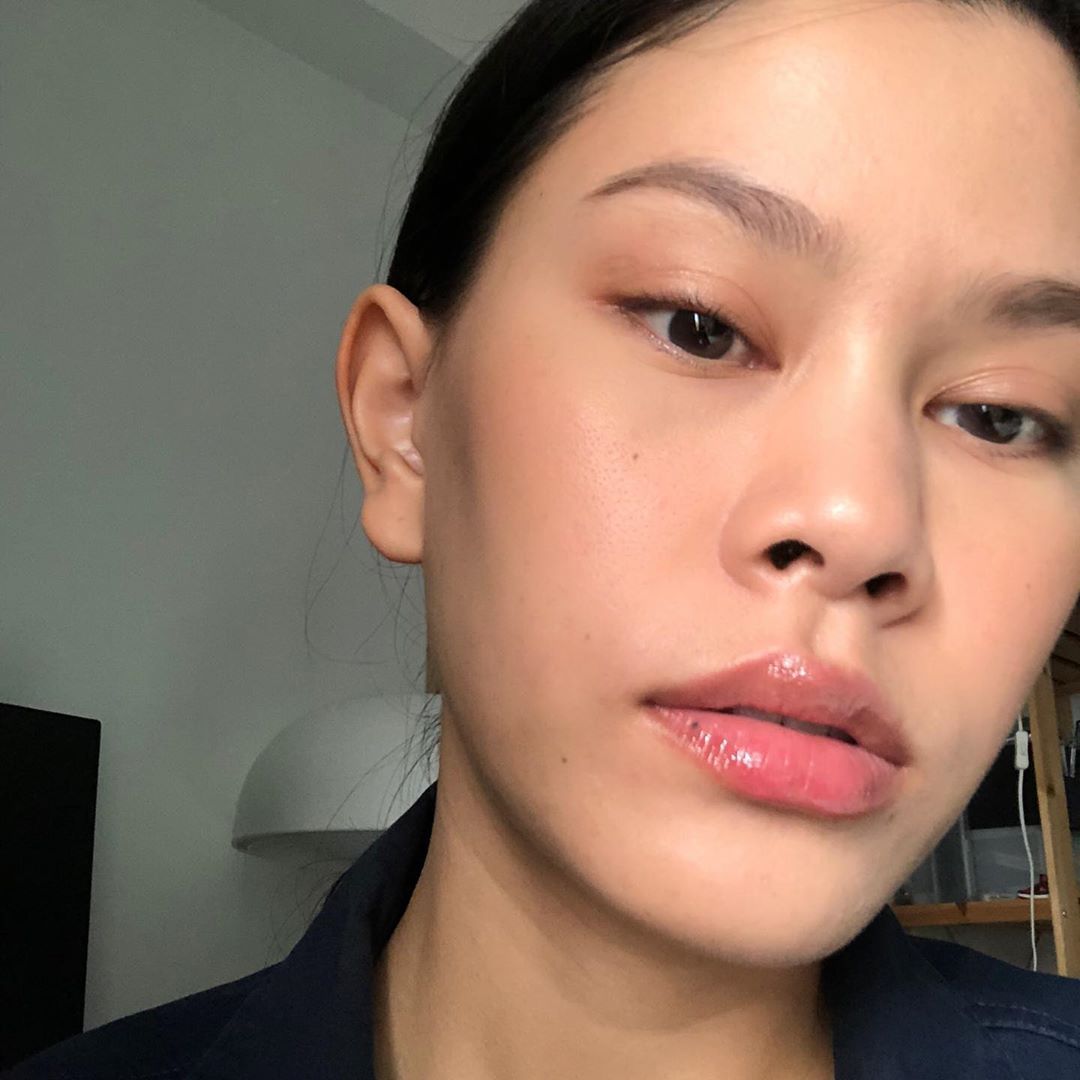You know those things that creep up onto our skin at any given time without warning us? Oh yeah, blackheads. Blackheads are the bane of our existence. Usually, they are the cause of oil, dirt, and debris that gather together on your nose and form pesky black dots.
What are blackheads? Oil, Dirt, and Dead Skin Cell Buildup Are the Cause of Blackheads on Your Nose Warm Weather Is Also a Common Cause of Blackheads Using Products With Salicylic Acid Will Reduce Blackheads Cleansing Twice a Day Can Also Help Using Retinoids Will Minimize Pores and Reduce Bacteria Causing Blackheads Applying Sunscreen Will Keep Your Blackheads to a Minimum Specific Laser Treatments Can Help Reduce Blackheads
However, we have good news on how to get rid of blackheads on your nose. It’s possible. We consulted expert dermatologists to share foolproof methods to banish blackheads for good.
Read on to find out what they had to say.
What are blackheads?
Blackheads are clogged pores that form as a result of bacteria, dirt, and oil buildup. When all of this is exposed to air, it oxidizes and turns the surface dark—hence, blackhead.
01
of 07
Oil, Dirt, and Dead Skin Cell Buildup Are the Cause of Blackheads on Your Nose
“Blackheads are essentially an accumulation of skin oil and dead cells that get trapped within the pores on the nose,” explains dermatologist Joshua Zeichner, MD. “Because the pores are large, the blockage is visible in the form of a black dot.”
It’s important to distinguish blackheads from sebum plugs, which are just spots of discolored oil in your pores. Everyone has oil in their pores, and it’s impossible to eliminate it, but it is possible to eliminate blackheads—which are caused by dead skin cells and oil partially blocking part of the hair follicles in your pores.
02
of 07
Warm Weather Is Also a Common Cause of Blackheads
“While the weather itself doesn’t cause pores to ‘shrink’ or ‘open,’ because pores don’t have hinges to open or close them, it can affect the about 300,000 openings on our face that allow the healthy secretion of sweat and sebum,” confirms dermatologist Dendy Engelman, MD. “Excessive sweating in the summer is one of the various issues that can contribute to pores clogging, along with oil, dirt, and skin cells—once the gunk has oxidized and darkened, it creates blackheads. Warmth can cause vasodilation [widening of your blood vessels] and relaxation of the erector pili muscles (the muscles that cause goosebumps), and this can make the opening of the pores appear enlarged.”
It’s never a bad idea to carry a facial wipe with you on particularly sweaty days or for after the gym. It’ll wipe away excess sweat, hopefully preventing a buildup of oil and skin cells in your pores.
03
of 07
Using Products With Salicylic Acid Will Reduce Blackheads
Zeichner encourages using treatments that prevent blockages from occurring and help remove what is already there. Your go-to ingredient should be salicylic acid. “This beta-hydroxy acid helps remove excess oil and exfoliates dead cells from the skin surface,” says Zeichner. Look for a cleanser that contains 2% salicylic acid, like this one from Neutrogena.
04
of 07
Cleansing Twice a Day Can Also Help
Engelman also stresses the importance of using a cleanser twice a day. “To reduce the appearance of large pores, start by keeping them clean. Use a gentle cleanser twice a day, but you should also use it after you sweat to prevent oil from building up. Using an exfoliating cleanser once a week will also help because it breaks down dead skin cells that clog pores and can give your skin a smoother appearance.” Try Clinique Exfoliating Scrub ($23).
As a weekly treatment with salicylic acid, Engelman suggests a mask like this one from Revision Skincare: “It contains freshwater silt derived from freshwater lakes in Eastern Europe and salicylic acid to help deeply cleanse the skin and unclog pores,” she says.
05
of 07
Using Retinoids Will Minimize Pores and Reduce Bacteria Causing Blackheads
Retinoids like OTC Differin Gel can reduce the size of pores that have been enlarged as a result of clogging and sun damage. “By applying a topical retinoid solution, you can dissolve bacteria that causes acne and treat sun damage at the same time,” explains Engelman. “This affects them at the cellular level—mainly the follicular keratin cells that are part of the pore lining, which have become sluggish and have buildup, causing the pore wall to stretch. Retinoids have the ability to improve pore function by jump-starting surrounding cells with its cell-communicating abilities. This allows your pores to do what they should be doing before sun damage caused them to malfunction.”
Retinoids will help with skin cell turnover and decrease blackheads as well as sun damage, but it also makes your skin more susceptible to sun damage. Make sure that you use a daily SPF to help protect your skin.
According to Engelman, these pore-minimizing products contain ingredients that boost the skin’s production of glycosaminoglycans, which help to firm the skin around pores, minimizing their appearance. “Glycosaminoglycans maintain and support collagen, elastin, and turgidity (bounce) in the cellular spaces and keep protein fibers in balance and proportion,” says Engelman. “It also promotes the ability of the collagen and elastin fibers to retain moisture, therefore remaining soluble.”
06
of 07
Applying Sunscreen Will Keep Your Blackheads to a Minimum
“You should always use sunscreen to protect your skin and keep large pores from becoming worse,” says Engelman, who is a fan of the one from EltaMD.
07
of 07
Specific Laser Treatments Can Help Reduce Blackheads
If you find yourself fixating on your blackheads, Engelman suggests looking into a laser treatment such as the Fraxel. “Fraxel is a fractional laser that works by causing controlled micro-injury to the skin, signaling surrounding skin to produce collagen which aids in reducing enlarged pores,” she explains. “This method of collagen stimulation benefits wrinkles, texture, and pore size.”
Up next, find out the facial for blackheads that cleared a Review2Coupon editor’s skin in 20 minutes.
FAQ
-
Is it okay to squeeze out blackheads?
Experts recommend avoiding squeezing out blackheads at all costs, as this can both bring on more inflammation and lead to scarring.
-
Why is my nose covered in blackheads?
Because the nose is made up of many oil glands (more than the rest of the face) blackheads are more likely to form in this area. This form of acne sits underneath the skin of the nose, hence why they can be difficult to remove.
-
Do blackheads go away naturally?
Though their stubborn, blackheads are known to eventually go away on their own, though this may take months or years. Keeping your skin exfoliated is a helpful way to speed up the process.










